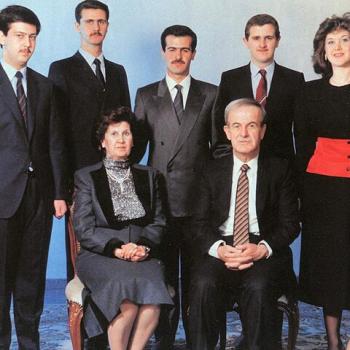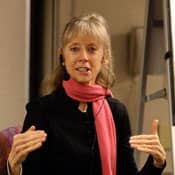"Does this kind of thing really do any good?" Julie asks me. She's looking for a new house to rent. Along with all of the usual methods, like asking friends, looking at Craigslist and the classifieds, and calling agents, she's also doing a process of visioning: imagining herself happily puttering around in a sun-filled, spacious, two-bedroom house with a country view and a price she can afford.
Julie raises an important question: Is it really possible that imagination can influence outcomes in the "real" world? In other words, is what Julie is doing a genuinely effective act, or is she just indulging in plain old fantasy?
The answer? It could be either.
Despite Picasso's famous statement that "Anything you can imagine is real," most rational adults recognize a fundamental distinction between "real" and "imaginary." "Real" is the consensus reality that most people live in, where what goes up must come down, and two objects can't occupy the same space at the same time. Unlike the residents of the Hindu and Buddhist heaven worlds or the Jet Li character in the film Hero who fights an entire battle in his imagination, few of us can manifest our intentions simply by imagining them into existence. No amount of wanting or imagining will get you a new job or cure your ulcer if you don't take the practical steps to make it happen.
But even a skeptic might recognize that the reverse is also true. Imagination always precedes transformation. Every important change you've made in your life—inner or outer—started with an act of imagination. The journey that led my friend Greg to a radical spiritual awakening began when he read a novel about Tibetan yogis, and imagined what it would be like to have extrasensory powers. We could say that he was fantasizing, but his fantasies led him to begin a meditation practice.
Imagination—our ability to create images not available to the sensory system—is arguably our greatest faculty for evolving human consciousness. In order to transform ourselves and our world, we need to be able to leap out of the familiar and into the unknown. The first step in doing this is to imagine a future different from the past, a self-sense different from the one we have now. Of course, we are shaped by our memories, by our karmas, and by the patterns woven into our neurons and cells. Undeniably, we're also influenced by our culture and physical circumstances. Some of these factors are hard to change. But the imagination can help us begin to replace our internal patterns, especially the ones that keep us limited and stuck. If we can re-imagine our sense of who we are, we can change our experience of life. Yoga is all about what happens when we recognize this truth. If you can imagine yourself, say, free of suffering, you've taken the first step towards that freedom.
Joseph Chilton Pearce, the author and child development expert, writes, "Physiologically superior to ordinary 'eye-seeing', imagination comes in from higher up 'the evolutionary stream' of vision, and even employs a higher, purer form of light.... Rather than the senses impacting the mind with imagery, as in ordinary seeing, through imagination the mind impacts the senses with imagery."
What Pearce means by 'higher up the evolutionary stream' is that the subtler levels of imagination sit relatively close to the original source of creativity. That original source has been described in a number of different ways—as the great mind, the collective unconscious, the field of all possibility, divine intelligence, the Tao. Acts of imagination can connect us to that mysterious place where insight and inspiration arrive unbidden—as an out-of-the-box idea, as the first line of a poem, as a direct recognition of who we are beyond our ordinary self-definitions. Imagination links us to infinite possibility, the realm from which all genuine creative insights arise. Great poets and scientific thinkers have repeatedly described the mystery of breakthrough the way John Keats did, when he said that his greatest poems were "given to me," by a "power like magic." Spiritual voyagers have similar experiences of the power of that inner realm. Imagination is the doorway into that realm beyond ordinary consciousness. As such, it is an evolutionary tool of the highest order.
According to the tantric master Abhinava Gupta, imagination is not just powerful, it is power itself. The human capacity to imagine, says tantra, is simply our individual form of the power of the infinite consciousness, the infinite mind. That great mind imagines worlds within itself, say the tantric sages, and brings them into existence. Our own imaginative power does the same thing on a smaller scale.
Yoga Vasistha, a key text of Vedanta that pre-figures quantum physics and string theory, describes our so-called Real World as a creation of imagination made of solidified consciousness, or subtle energy, which each of us holds in place by believing in it. This same text consistently maintains that a yogi who understands this principle and cultivates it can re-arrange these particles of mind-stuff and manifest just about anything. One reason why a text like Paramahansa Yogananda's Autobiography of a Yogi fascinates generations of yoga practitioners because it is filled with stories of men and women who could bilocate themselves, travel to other worlds, change the destinies of disciples simply by the power of their focused attention and will. Most of us aren't operating at anywhere near that level, of course. More likely, our imaginations operate unconsciously, as unexamined fantasies and stray thought-constructs. By practicing what I call the yoga of imagination, we can learn how to use our divine gift for fantasy as a creative tool for transformation.





